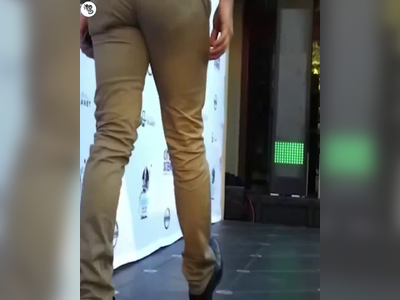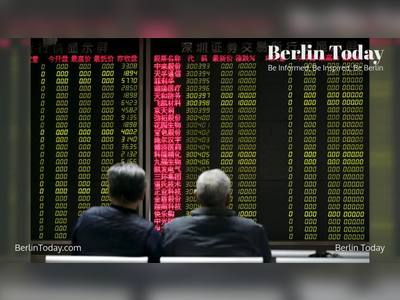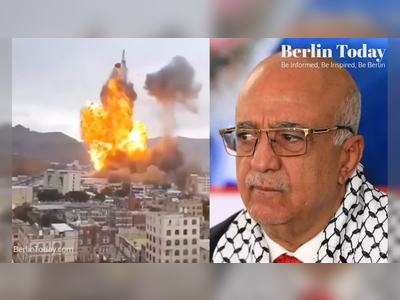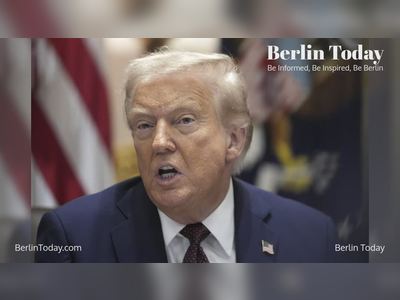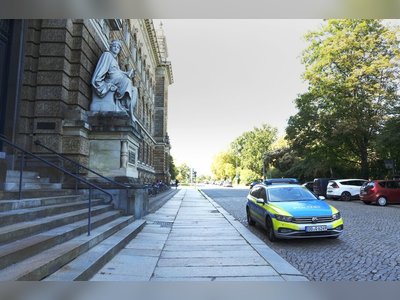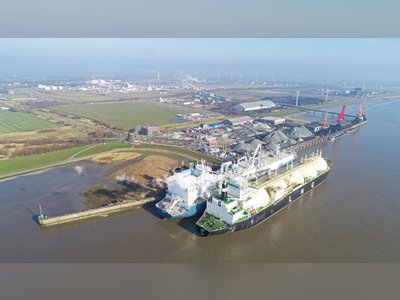International Leaders Convene in Kyiv to Reaffirm Support for Ukraine
World leaders gather on the third anniversary of Russia's invasion, amid escalating geopolitical tensions and recent criticisms from Donald Trump.
BRUSSELS — A significant assembly of international leaders is set to take place in Kyiv on February 24, 2025, coinciding with the third anniversary of Russia's full-scale invasion of Ukraine.
This meeting occurs in the context of heightened tensions following recent statements made by former U.S. President Donald Trump, who has faced criticism for suggesting that Ukraine initiated the conflict.
In stark contrast, the prevailing narrative emphasizes that the war began with Russia’s aggressive military actions in February 2022.
Attending leaders include Spanish Prime Minister Pedro Sánchez, European Council President António Costa, and European Commission President Ursula von der Leyen, all of whom have confirmed their presence in Kyiv.
Leaders from Lithuania, Latvia, Malta, and Canada are also expected to participate, either in person or virtually, demonstrating a united front in support of Ukraine.
The participation of European Parliament President Roberta Metsola remains uncertain due to prior commitments, although she is anticipated to join the meeting in some capacity.
The gathering takes place shortly after Trump's critique of Ukrainian leadership, which has drawn sharp rebukes from both European leaders and Ukrainian officials.
They continue to uphold President Volodymyr Zelenskyy's leadership and the legitimacy of Ukraine’s defense efforts against the ongoing aggression.
In response to the geopolitical landscape shaped by Trump’s comments, the European Union's College of Commissioners has announced plans to visit Ukraine, aiming to evaluate and reinforce security arrangements.
This initiative is indicative of the EU's ongoing commitment to managing the crisis and supporting Ukraine amidst ongoing hostilities.
President Zelenskyy has actively sought international support, affirming that multiple heads of state and EU leaders are expected to converge in Kyiv for discussions on security guarantees.
Organizers have indicated that security considerations are at play regarding the disclosure of attending leaders’ identities.
Responses regarding attendance from several European nations remain varied.
Countries such as Croatia, Denmark, Norway, Finland, Poland, Estonia, Sweden, Belgium, Ireland, the Netherlands, and Germany have yet to announce their participation.
Conversely, the Czech Republic has publicly stated it will not send a leader to the meeting.
French President Emmanuel Macron is scheduled to visit Washington, D.C. next week, following an emergency informal meeting this week in Paris that focused on European security concerns.
Macron’s conversation with Trump before the summit was characterized as friendly, albeit brief.
Additionally, a meeting involving representatives from countries including Lithuania, Estonia, Latvia, the Czech Republic, Greece, Finland, Romania, Sweden, Belgium, Canada, and Norway was held on February 21 to discuss the ongoing situation in Ukraine.
The Yalta European Strategy (YES) organization, which advocates for Ukraine's integration into the European Union, is actively working to coordinate the attendance of additional high-profile dignitaries for the Kyiv meeting.
This gathering reflects the persistent efforts of the international community to strengthen solidarity with Ukraine in the face of substantial geopolitical challenges.
This meeting occurs in the context of heightened tensions following recent statements made by former U.S. President Donald Trump, who has faced criticism for suggesting that Ukraine initiated the conflict.
In stark contrast, the prevailing narrative emphasizes that the war began with Russia’s aggressive military actions in February 2022.
Attending leaders include Spanish Prime Minister Pedro Sánchez, European Council President António Costa, and European Commission President Ursula von der Leyen, all of whom have confirmed their presence in Kyiv.
Leaders from Lithuania, Latvia, Malta, and Canada are also expected to participate, either in person or virtually, demonstrating a united front in support of Ukraine.
The participation of European Parliament President Roberta Metsola remains uncertain due to prior commitments, although she is anticipated to join the meeting in some capacity.
The gathering takes place shortly after Trump's critique of Ukrainian leadership, which has drawn sharp rebukes from both European leaders and Ukrainian officials.
They continue to uphold President Volodymyr Zelenskyy's leadership and the legitimacy of Ukraine’s defense efforts against the ongoing aggression.
In response to the geopolitical landscape shaped by Trump’s comments, the European Union's College of Commissioners has announced plans to visit Ukraine, aiming to evaluate and reinforce security arrangements.
This initiative is indicative of the EU's ongoing commitment to managing the crisis and supporting Ukraine amidst ongoing hostilities.
President Zelenskyy has actively sought international support, affirming that multiple heads of state and EU leaders are expected to converge in Kyiv for discussions on security guarantees.
Organizers have indicated that security considerations are at play regarding the disclosure of attending leaders’ identities.
Responses regarding attendance from several European nations remain varied.
Countries such as Croatia, Denmark, Norway, Finland, Poland, Estonia, Sweden, Belgium, Ireland, the Netherlands, and Germany have yet to announce their participation.
Conversely, the Czech Republic has publicly stated it will not send a leader to the meeting.
French President Emmanuel Macron is scheduled to visit Washington, D.C. next week, following an emergency informal meeting this week in Paris that focused on European security concerns.
Macron’s conversation with Trump before the summit was characterized as friendly, albeit brief.
Additionally, a meeting involving representatives from countries including Lithuania, Estonia, Latvia, the Czech Republic, Greece, Finland, Romania, Sweden, Belgium, Canada, and Norway was held on February 21 to discuss the ongoing situation in Ukraine.
The Yalta European Strategy (YES) organization, which advocates for Ukraine's integration into the European Union, is actively working to coordinate the attendance of additional high-profile dignitaries for the Kyiv meeting.
This gathering reflects the persistent efforts of the international community to strengthen solidarity with Ukraine in the face of substantial geopolitical challenges.
AI Disclaimer: An advanced artificial intelligence (AI) system generated the content of this page on its own. This innovative technology conducts extensive research from a variety of reliable sources, performs rigorous fact-checking and verification, cleans up and balances biased or manipulated content, and presents a minimal factual summary that is just enough yet essential for you to function as an informed and educated citizen. Please keep in mind, however, that this system is an evolving technology, and as a result, the article may contain accidental inaccuracies or errors. We urge you to help us improve our site by reporting any inaccuracies you find using the "Contact Us" link at the bottom of this page. Your helpful feedback helps us improve our system and deliver more precise content. When you find an article of interest here, please look for the full and extensive coverage of this topic in traditional news sources, as they are written by professional journalists that we try to support, not replace. We appreciate your understanding and assistance.
